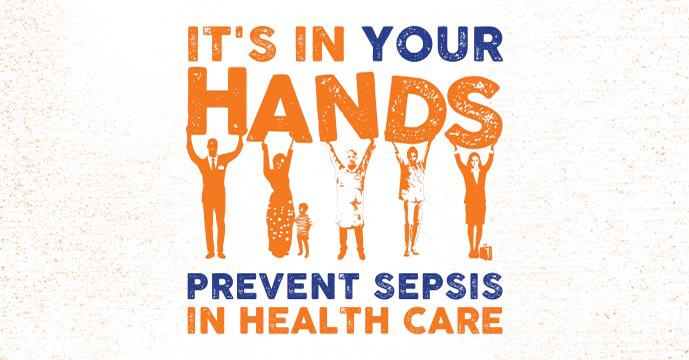Every year on May 5th, the World Health Organization and its commited partners all around the world celebrate World Hand Hygiene Day as a call to action for health workers, but also to stimulate the general public for why hand hygiene is so crucially important.
This year, the slogan is "It's in your hands - prevent sepsis in health care".
Although 80 % of sepsis cases are contracted outside of a hospital (see video below), hand hygiene plays a huge role in the prevention of infections, which can quickly lead to sepsis.
Therefore, the WHO urges you to focus on the fight against sepsis in the context of hand hygiene and infection prevention in health care.
Sepsis is estimated to affect more than 30 million patients every year worldwide, and global rates of sepsis are thought to be growing rapidly. At the Seventieth World Health Assembly in May 2017, Member States adopted a resolution on improving the prevention, diagnosis and treatment of sepsis.
The WHO Calls to action are:
- Health workers: “Take 5 Moments to clean your hands to prevent sepsis in health care."
- IPC leaders: “Be a champion in promoting hand hygiene to prevent sepsis in health care.”
- Health facility leaders: "Prevent sepsis in health care, make hand hygiene a quality indicator in your hospital.”
- Ministries of health: "Implement the 2017 WHA sepsis resolution. Make hand hygiene a national marker of health care quality."
- Patient advocacy groups: "Ask for 5 Moments of clean hands to prevent sepsis in health care."
We encourage you and your organization to support World Hand Hygiene Day and prevent sepsis in health care!











